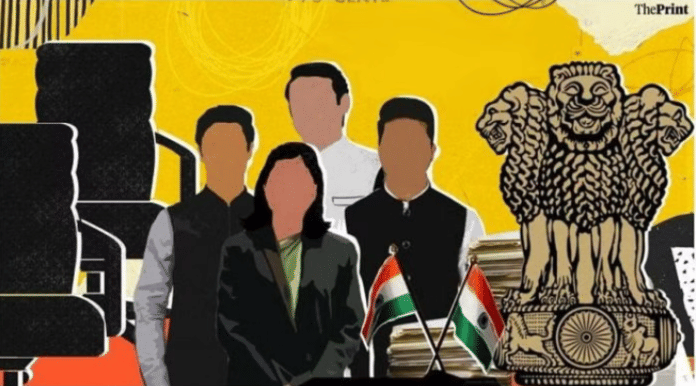Thank you dear subscribers, we are overwhelmed with your response.
Your Turn is a unique section from ThePrint featuring points of view from its subscribers. If you are a subscriber, have a point of view, please send it to us. If not, do subscribe here: https://theprint.in/subscribe/
Diplomacy has always been a theatre of quiet conversations, hidden motives, and invisible trade-offs. Traditionally, it was an art — the art of persuasion, balance, and restraint. Statesmen spent years cultivating trust, maintaining decorum, and believing, at least outwardly, that nations cooperated for peace, not profit. But those ideals now belong to another age. In the twenty-first century, diplomacy has shed its cloak of subtlety and revealed its true nature — as little more than a marketplace of interests.
No one embodied this transformation more openly than Donald J. Trump. His approach to global politics was bluntly transactional. Alliances, in his view, were not about shared values but about value delivered. His mantra was simple and public: “What can you give me for the little I will give you?” That question has now become the unspoken rule of global diplomacy. Every nation wants to know what the other side can offer — in trade, access, technology, or strategic advantage.
This has effectively replaced dialogue with deal-making. The old world of diplomacy — of cables, back channels, and patient negotiation — is fast disappearing. What stands in its place is a culture of “immediate returns.” Nations today behave like corporations: they measure success not by goodwill or consistency but by quarterly outcomes and transactional gains. The line between diplomacy and business negotiation has blurred.
For India, this poses a unique challenge. Since independence, India’s foreign policy has been guided by a balance of idealism and pragmatism. Jawaharlal Nehru’s concept of non-alignment was not neutrality but strategic autonomy — the right to decide issues based on national interest, not external pressure. India believed in the power of moral example, in upholding democratic values and mutual respect. Even as the world polarised during the Cold War, India walked its own path with conviction.
But in a world that now rewards opportunism, India’s principled approach is often tested. The rise of “deal diplomacy” means that values like non-alignment, mutual respect, and long-term vision are increasingly viewed as outdated or naïve. Nations that once paid lip service to ideals now openly chase advantage. Alliances shift overnight, and loyalty lasts only until a better offer arrives.
No country demonstrates this better than Pakistan. For decades, Pakistan has played the role of the world’s most adaptable ally — ready to offer military bases, intelligence cooperation, or political support to whoever pays the highest price. Its relationship with the United States is the most telling example. Washington and Islamabad have danced this dance since the Cold War — a partnership built not on trust, but on transaction. Pakistan has provided strategic access, first against the Soviet Union, later during the War on Terror, and now potentially against new adversaries. In return, it has received billions in aid and a free pass on many of its internal excesses.
Even when caught supporting terrorism or undermining U.S. interests, Pakistan somehow manages to reinvent itself as “indispensable.” In 1965 and 1971, when India faced Pakistan on the battlefield, the U.S. did not hesitate to side with its military rulers, ignoring India’s democratic credentials. The message was clear then — and remains clear now: in global affairs, convenience outweighs conscience.
India cannot change this reality, but it can adapt to it. To thrive in a world of deals, India must learn to negotiate hard without compromising its dignity. It must leverage its economic strength, its vast market, its technological capability, and its moral authority in a way that creates tangible returns. Power, after all, commands attention. The stronger India becomes economically and militarily, the less it will have to plead its case — and the more it can shape global deals on its own terms.
The key lies in striking the right balance between pragmatism and principle. India cannot afford to abandon its ideals; they are what give its diplomacy credibility. But it must also recognize that ideals without influence achieve little. In today’s geopolitical marketplace, nations respect results more than rhetoric. India’s foreign policy, therefore, must be both ethical and effective — grounded in values but guided by clear, calculable interests.
The world has changed beyond recognition. Quiet diplomacy has given way to loud bargaining, and the language of power has become transactional. Yet amid this shifting terrain, India can chart its own course — one that combines the wisdom of restraint with the realism of strategy. In the end, deals may dominate the headlines, but only nations with enduring principles will command lasting respect.
Col KL Viswanathan
(The author is an Indian Army veteran and a contemporary affairs commentator. The views are personal. He can be reached at kl.viswanathan@gmail.com )
This piece has not been published in any media earlier.
These pieces are being published as they have been received – they have not been edited/fact-checked by ThePrint.


